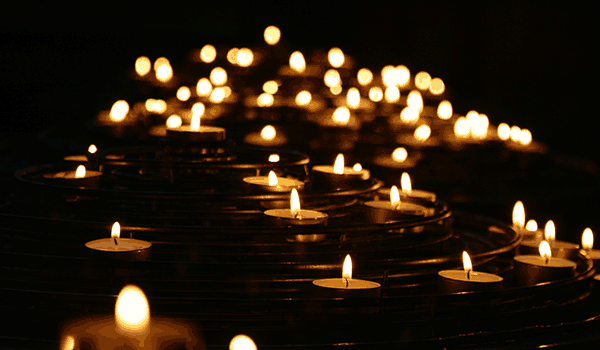
When the time for Pentecost was fulfilled, they were all in one place together. And suddenly there came from the sky a noise like a strong driving wind, and it filled the entire house in which they were. Then there appeared to them tongues as of fire, which parted and came to rest on each one of them. And they were all filled with the holy Spirit and began to speak in different tongues, as the Spirit enabled them to proclaim.
Acts 2:1-4
Each new day not only brings us new objects of anxiety, but also new objects of interest and “new mercies.” This Pentecost is a special one, like all other Pentecosts, like all days. At times, it seems easier to flagellate ourselves over failures to read the signs of the times (e.g., from being shocked by Brexit to again being shocked by Trump’s election) and become depressed, insular. In light of the United States’ pragmatic pullout from the Paris Agreement and other world-staged dramas, we’re somewhat refreshingly reminded, in sickness and in health, of the simple, amorphous breath that first creates the poetry of life, the same breath that gifts humanity speech and different tongues.
A force so great that it has been with us through every May 4 (I’m lame), yet invisible to the naked eye unless it’s blown into subzero air. Breath is part of what enables voice, expressions of human agency, and spiritual authority. This precious miracle of voice flows from its ventilatory enabler, which also happens to play a major part in sustaining intricate mechanisms intrinsic to the embodied mystery of human existence. The voice can be misused to spread fear and low spirits, or taken for granted till it gets croaky, past the apex of interim virus-aided “sexy voice” evolution, toward the end of convalescence from most flus.
We’re only humanly existing. Just a bunch of bipedal (thanks for the backaches and difficult childbirths, God!) earth-scavenging blobs who speak while huffing and puffing to survive our throbbing id against the “other,” and vice versa. One-millennium-old block of animus-aged cheese after another, this human condition, today, still translates into “the first human response to difference” (Sacks, 602) — Cain-and-Abel-esque narratives like I should be more “blessed” than you, my people are better off than yours, “my god against yours” (Sacks, 602) that are psychologically expedient to believe and euphemize. In such times, the beating of the heart helplessly echoes the beating of holy tonal drums, drowning out animals who do not sound or look like us. Life can start now, when tomorrow is yet to be today; the best is yet to come:
Now there were devout Jews from every nation under heaven staying in Jerusalem. At this sound, they gathered in a large crowd, but they were confused because each one heard them speaking in his own language. They were astounded, and in amazement they asked, “Are not all these people who are speaking Galileans? Then how does each of us hear them in his own native language? We are Parthians, Medes, and Elamites, inhabitants of Mesopotamia, Judea and Cappadocia, Pontus and Asia, Phrygia and Pamphylia, Egypt and the districts of Libya near Cyrene, as well as travelers from Rome, both Jews and converts to Judaism, Cretans and Arabs, yet we hear them speaking in our own tongues of the mighty acts of God.”
Acts 2:5-11
Beneath multilayered sounds of different tongues is the shared, still aural purity of God native to human hearts. Tearing down barricades of shallow confusions and pious judgments, different people may hear a small voice coming from the same mighty “fruit of the Spirit,” the same human obeisance to divine creation and equal dignity, the same language of love and hope!
There is less need of codependency on external moral compasses, and more love of a God who awaits to be found in the acceptance, affirmation, and celebration of difference as dignity, diversity as sanctity and happiness. God as the red pill that deconstructs siren songs of “securities,” plucks us out from behind stained glass, and mercifully plunges us into richly lived realities. This is where God witnesses all human rights and human faiths marry. Inclusive sanctities of humanity as an endlessly colored family, “on earth as it is in heaven,” are stronger than state, church, or any institutional power.
On Pentecost, Christ’s human family of hope is born. God, as always, waits to be listened to in our very own language, in our raw, tender depths of radical self-honesty.
Agnes Hanying is an ecumenical Christian and an LGBTQ ally.
Photo via Unsplash.